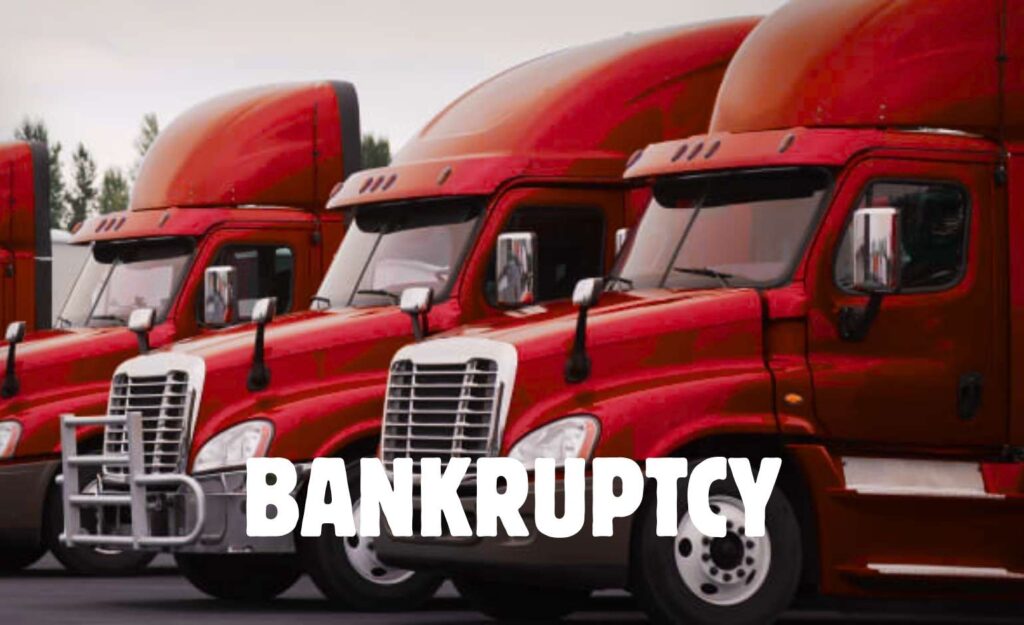When a trucking company files Chapter 11 bankruptcy, it’s a sign that serious financial trouble has hit the business. But what does this mean exactly, for the company, its employees, and everyone else involved?
Chapter 11 bankruptcy isn’t the end of the road, but rather a strategic step companies use to restructure their finances and regain stability. Yet, understandably, employees often feel anxious about what the future holds: Will their jobs remain secure? What happens to their salaries, benefits, or retirement plans?
Let’s break down what happens when trucking companies file for Chapter 11. We’ll answer your questions, calm your concerns, and help you understand exactly what to expect if your employer or any trucking company you rely on takes this significant step.
A Detailed Overview of “Trucking Company Files Chapter 11”
When a trucking company files Chapter 11 bankruptcy, it doesn’t mean they’re closing down immediately. Instead, Chapter 11 is specifically designed to help struggling businesses restructure debts, stay operational, and hopefully become profitable again.
Under Chapter 11, the company continues its normal operations, meaning trucks typically keep rolling and goods continue to move.
The trucking company collaborates with the bankruptcy court to develop a comprehensive plan for repaying creditors over time. This structured approach provides a lifeline, giving the business space to reorganize its finances and regain footing in the market.
But why do trucking companies commonly file for Chapter 11? Usually, the trucking industry faces unique challenges, such as high fuel costs, driver shortages, and changing regulations, which can quickly eat away at profits.
When debts start piling up, filing Chapter 11 provides breathing room to renegotiate debts, leases, and contracts, while maintaining steady operations.
What Happens to Employees When a Company Files Chapter 11?
When a trucking company files Chapter 11 bankruptcy, employees naturally worry about job security. Fortunately, Chapter 11 doesn’t automatically mean layoffs or closures. Usually, employees keep working, receiving regular salaries and benefits, as the company continues its daily operations.
Still, some changes may occur, such as temporary wage freezes, benefit adjustments, or the restructuring of roles for greater efficiency. If layoffs do happen, larger companies typically must provide advance notice under federal law. Even in those cases, employees usually receive priority for unpaid wages and benefits during bankruptcy proceedings.
In short, Chapter 11 brings uncertainty, but often provides a chance for the company and its employees to stabilize and recover.
Also Read: Best Investment Options: Where to Put Your Money in 2025
Real Cases: Trucking Companies That Filed Chapter 11
Examining actual Chapter 11 filings provides valuable insight into how trucking businesses navigate this challenging process.
Nortia Logistics (Franklin Park, IL) filed Chapter 11 on June 9, 2025, listing $1–10 million in assets and liabilities. With 56 power units and 45 drivers, Nortia faced major creditor claims, most notably $3.83 million from Union Pacific Railroad. They continue hauling general freight and intermodal containers during reorganization.
Dolche Truckload Corp. (Palatine, IL) filed for Chapter 11 on June 16, 2025. The company reported $1–10 million in assets and liabilities, with creditors like M&T Bank and the SBA filing significant claims. Dolche operates around 57 trucks and 60 drivers, focusing on diverse freight types including refrigerated food and industrial goods .
AZA Transportation (Mount Prospect, IL) took the Chapter 11 route on May 14, 2025, owing between $500,000 and $1 million. With 70 power units and 71 drivers, top creditors included Keystone Equipment Finance and Transportation Alliance Bank. Despite the filing, AZA continues operating freight services while restructuring.
These examples highlight common patterns, including significant debt, active operations, and ongoing negotiations with creditors. Each company uses Chapter 11 to maintain business continuity while working toward financial stability.
What Happens When a Trucking Company Files Chapter 11?
When a trucking company officially files Chapter 11, a structured process immediately begins. First, the business submits detailed paperwork to the bankruptcy court. These documents clearly outline all debts, assets, income, and operating expenses, giving the court and creditors a transparent financial picture.
The company then receives an automatic stay from the court. This stay is vital, as it temporarily stops creditors from taking aggressive actions such as lawsuits, repossessions of trucks, or forcing the company into liquidation. Essentially, it gives the trucking company breathing room to restructure its finances without external pressure.
During Chapter 11, the company continues daily operations under court supervision. Management typically remains in control, but significant business decisions (like buying new equipment, taking out new loans, or selling significant assets) require court approval.
The trucking company also prepares a detailed restructuring plan. This plan explains how it intends to reorganize debts and regain profitability. Creditors and the court must approve this plan before it becomes official.
If approved, the company will start executing the restructuring steps. If creditors reject the plan or it’s unsuccessful, Chapter 11 could eventually lead to Chapter 7 liquidation.
Overall, Chapter 11 provides trucking companies with a clear, structured chance to recover financially, maintain operations, and preserve jobs, provided careful planning and effective execution.
Lessons from Trucking Companies Filing Chapter 11
When a trucking company files Chapter 11 bankruptcy, there are important lessons everyone involved, business owners, employees, and industry observers, should understand clearly.
First, proactive financial management matters. Most trucking bankruptcies result from ongoing challenges, including rising fuel costs, driver shortages, and heavy debt. Recognizing financial trouble early and making prompt adjustments can prevent the need for Chapter 11.
Second, open communication is essential. Companies that clearly explain their situation to employees, creditors, and customers typically experience smoother restructuring processes. Employees who understand the situation clearly feel less uncertainty and stress.
Third, restructuring requires realistic plans. Companies with successful Chapter 11 outcomes usually have detailed and practical restructuring strategies that creditors find acceptable. Unrealistic goals or unclear strategies often lead to eventual liquidation.
Finally, employees should stay informed about their rights. Understanding how Chapter 11 affects wages, benefits, and job security helps employees make informed decisions about their futures.
Navigate Chapter 11 and Stay Prepared with Confidence
When a trucking company files Chapter 11, uncertainty naturally arises. But now you know exactly what Chapter 11 means, how it affects employees, and how real companies have successfully navigated this process.
Don’t wait until financial trouble hits. Stay prepared by clearly understanding your rights, responsibilities, and options throughout the bankruptcy process. For business owners, proactive financial management and transparent communication can make all the difference between recovery and closure.
Employees, stay informed about your rights and stay connected to trusted resources like InnovateDailyHub.com. Knowledge gives you power, stability, and confidence, even in challenging times.
Take action today. Keep learning, stay prepared, and confidently navigate any challenges Chapter 11 might present.
FAQs
Employees usually keep working and receiving regular paychecks during Chapter 11. However, temporary changes, such as wage freezes or benefit adjustments, may occur. If layoffs occur, employees typically receive advance notice and are prioritized for unpaid wages and benefits.
When a company files for Chapter 11, it continues operating under court protection while restructuring its debts. This process temporarily stops creditor actions like lawsuits or repossessions, allowing the company time to develop and execute a recovery plan.
Trucking companies often file for Chapter 11 due to challenges such as high fuel costs, driver shortages, overwhelming debt, or competitive market pressures. Chapter 11 gives them breathing room to restructure finances and regain stability.
Yes, many companies successfully reorganize and survive Chapter 11. If the restructuring plan is realistic and creditors approve it, the company can regain financial health and continue its operations in the long term.
Employees should stay informed by regularly communicating with management and understanding their rights regarding wages and benefits. Keeping an eye on updates from credible sources helps employees make clear and informed career decisions during the restructuring process.








